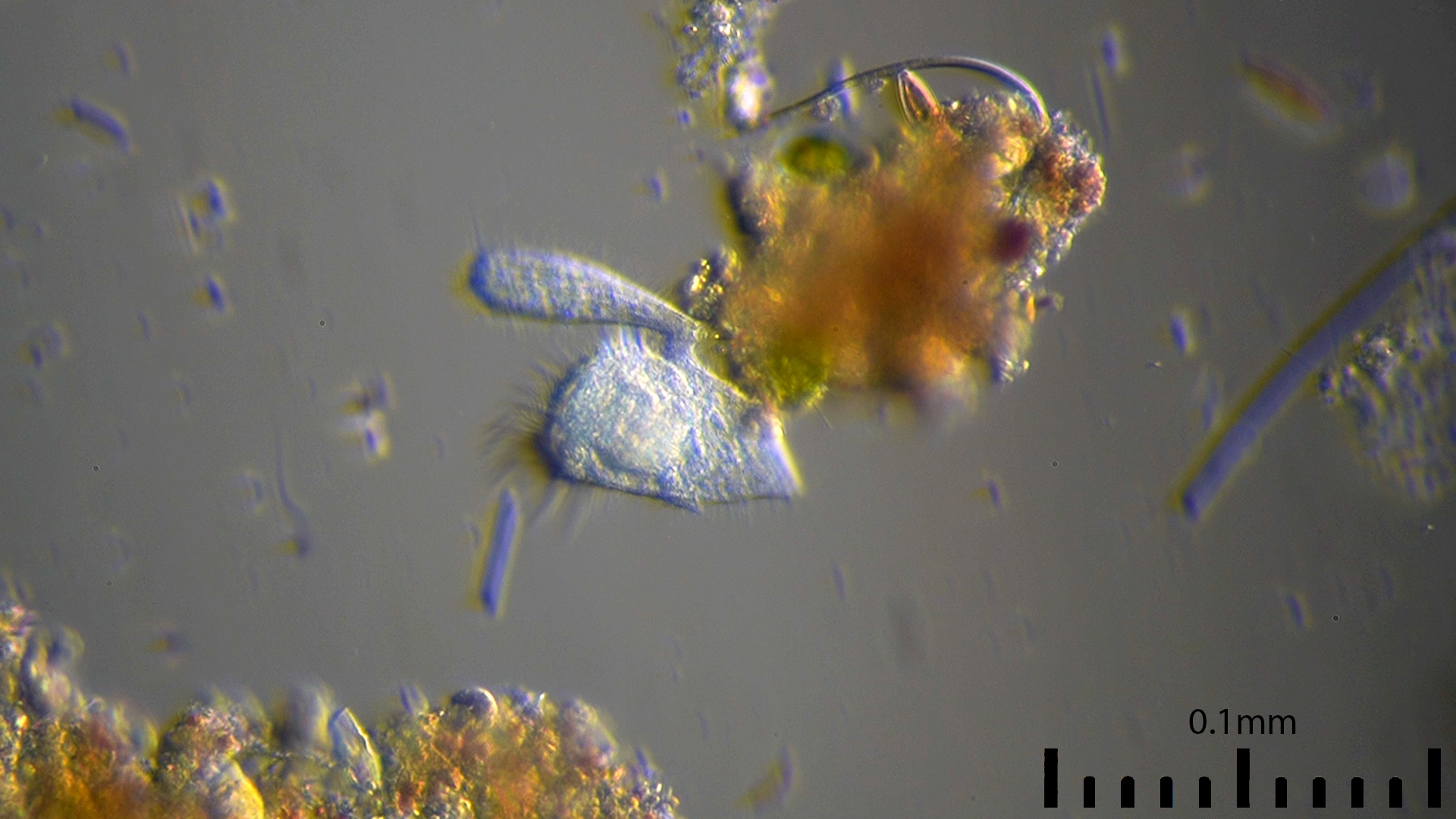#3
Post
by Bruce Taylor » Mon Dec 04, 2023 3:32 pm
Could you post video footage? It's hard to see what's going on in this image. The ratio of anterior cilia/polykinetids to body length would be unusual for Stentor (more like a choreotrich or peritrich, for instance...however, it is really hard to tell from what we see here). Does the .1 mm on your scale refer to the whole bar or to the smaller subdivisions? I suspect it is the former, in which case this creature is much too small to be a Stentor.
Stentors, like most ciliates, reproduce by transverse fission (i.e. equal division in the middle of the cell, across the longitudinal axis). Budding (unequal fission, where the daughter cell is smaller than the parental form) is much less common in ciliates, but occurs in a few groups--suctorians, chonotrichs, and sometimes in peritrichs. The first two are out of the question, and unequal (anisotomic) division in peritrichs does not normally look like this, so I would tend to think this might be an ectoparasite. Video might clear up the uncertainties.

